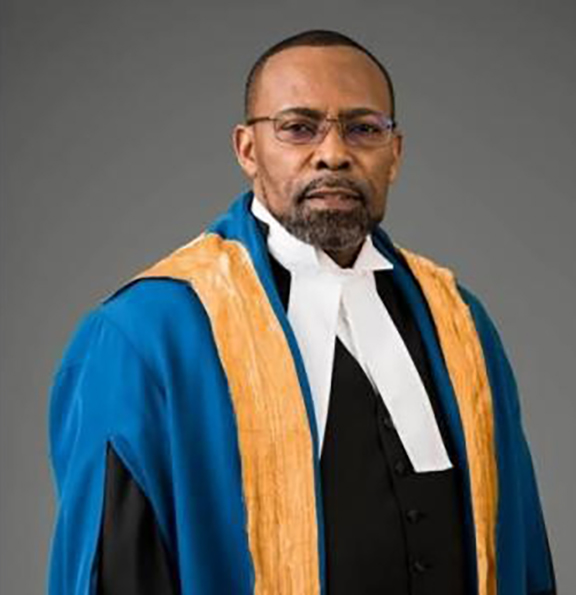(Jamaica Gleaner) A senior Jamaican jurist at the Caribbean Court of Justice (CCJ) is asserting that Jamaica has a legal obligation to adopt the regional court as its final appellate tribunal, noting that the country has had ample time to consider its accession.
“Jamaica is under a legal obligation to join the court, so that there’s continuity of government because the government is not represented by one party, it is an institution which endures whichever party’s in power,” said Justice Winston Anderson, a 15-year veteran of the court.
“When Jamaica signed on to the CCJ agreement, that was an international obligation that Jamaica assumed, and it, therefore, calls for the Government of Jamaica, whichever party is in office, to fulfil that obligation,” he told The Gleaner in an interview on Monday.
The St Ann native further emphasised that Jamaica did not express any reservation about accepting the appellate provision when signing the agreement, unlike countries such as St Vincent and the Grenadines and Suriname.
“So not having entered a reservation is really a legal obligation on Jamaica to follow through with its obligation … .
Regarding timing, Justice Anderson acknowledged that it’s up to the Government and Opposition, but he noted that a 20-year delay in fulfilling this obligation is excessive.
“Normally, in international law, one is given a reasonable time to fulfil one’s treaty obligations. And a reasonable time, normally, is five years – maybe even 10 years – but 20 years is a long time. So I think it’s something that the parliamentarians in Jamaica must also consider very seriously,” he said.
The debate over Jamaica’s final appellate court has become a point of contention in the Government’s bid to remove the British monarchy as head of state. The Government recently introduced the Constitution (Amendment) (Republic) Act 2024, but the Opposition insists that the Privy Council must be replaced with the CCJ simultaneously with the removal of the monarchy.
While the Government contends there is no consensus on the matter, the Opposition’s support for the bill hinges on the CCJ’s inclusion.
Justice Anderson, however, believes that it would be a positive step for Jamaica to sign off on the CCJ as its final court of appeal, assuring that the country would not be disadvantaged. He highlighted that the CCJ’s judgments are comparable to those of other apex courts globally, and Caribbean countries that have adopted the CCJ as their final court have not faced negative impacts on foreign investment or human rights protection.
Noting that he is very proud to be serving the region and that it has been a “tremendous journey”, Anderson said that Jamaicans should take pride in the fact that two of their countrymen – himself and Chantal Ononaiwu – are serving at the court.
“Obviously, we can’t pronounce on the quality of the job that we are doing, but if you speak with persons from the countries who are sending appeals to us, I think overall, they will say that the court is doing a commendable job,” he told The Gleaner.
With Jamaica being a leader in the region, Justice Anderson expressed that completing the process of joining the CCJ would influence other Caribbean nations to follow suit. He also warned that although there are no sanctions for failing to replace the Privy Council, “it’s not a good look when a country has undertaken an international obligation and then has not followed through”.








